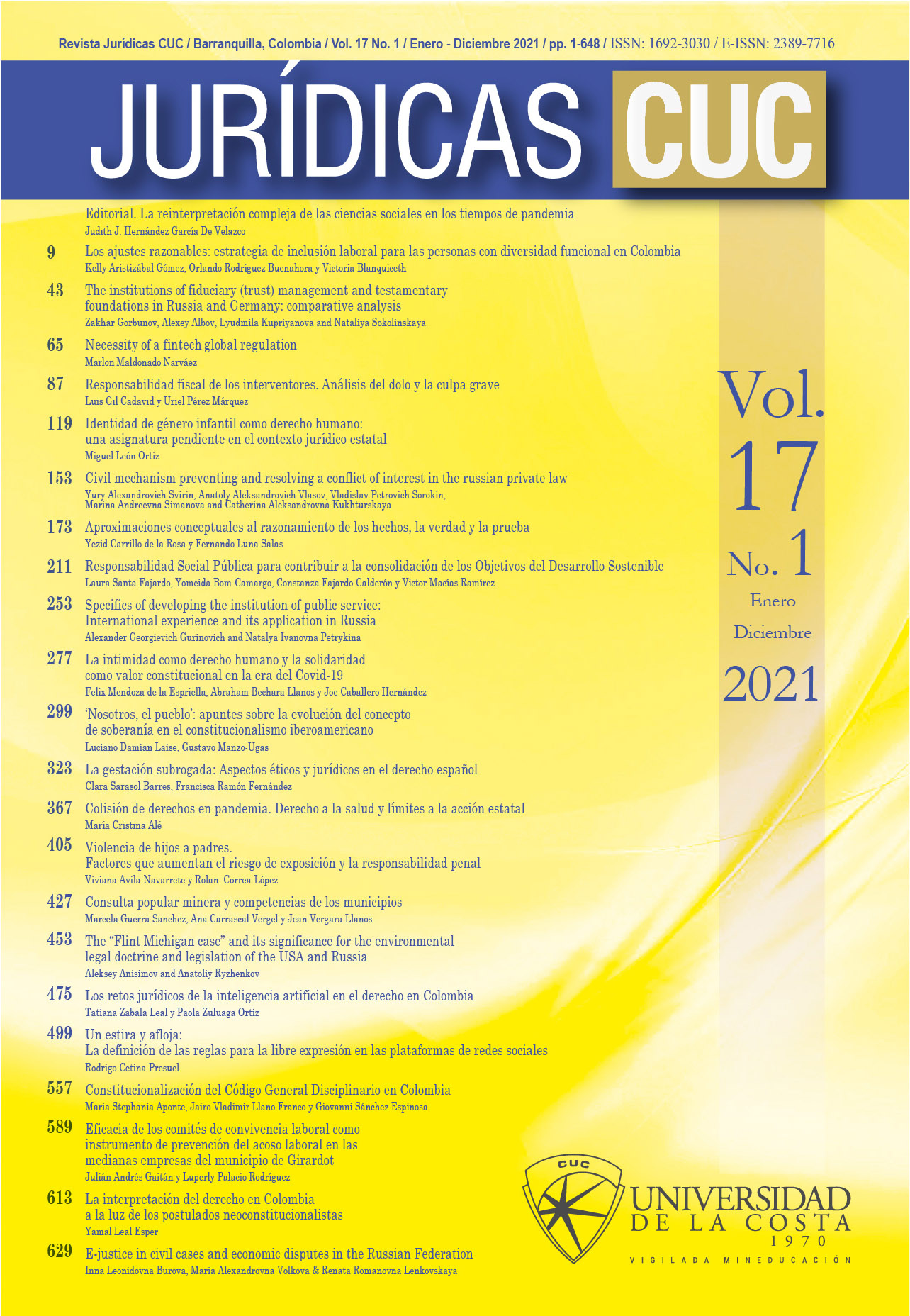Justicia electrónica en asuntos civiles y disputas económicas en la Federación de Rusia
##plugins.themes.bootstrap3.article.main##
Resumen
Se analizaron los últimos cambios en la legislación de la Federación de Rusia, dirigidos al desarrollo de la justicia electrónica en asuntos civiles y arbitrales. Los principales métodos de este estudio fueron formal-legal, comparativo-legal y sistemático. Se valoraron positivamente la introducción de tecnologías digitales en el ámbito de la protección judicial de los derechos y los intereses protegidos por la ley, de los ciudadanos y organizaciones en la Federación de Rusia. Se observa que la informatización de los procedimientos judiciales y legales servirá como un medio eficaz para implementar los principios de transparencia y acceso de la justicia en la Federación de Rusia. El uso de elementos de la justicia electrónica, como la presentación electrónica de documentos, la participación en una reunión mediante videoconferencia, el registro de audio y video, la posibilidad de que las personas involucradas en el caso obtengan protocolos de audio y video a través de sistemas electrónicos de comunicación, la notificación a los participantes en el proceso utilizando recursos como la “guardia electrónica”, la notificación por SMS, etc., tiene como objetivo mejorar la calidad de la justicia rusa. A pesar de la evaluación general positiva de los cambios en la legislación de la Federación de Rusia sobre justicia electrónica, los autores señalan sus deficiencias individuales. El artículo refleja los problemas de la regulación normativa de la justicia electrónica en la Federación de Rusia y propone formas de resolver conflictos legales.
Descargas
##plugins.themes.bootstrap3.article.details##

Esta obra está bajo una licencia internacional Creative Commons Atribución-NoComercial-SinDerivadas 4.0.
Los artículos publicados son de exclusiva responsabilidad de sus autores y no reflejan necesariamente las opiniones del comité editorial.
La Revista JURIDICAS CUC respeta los derechos morales de sus autores, los cuales ceden al comité editorial los derechos patrimoniales del material publicado. A su vez, los autores informan que el presente trabajo es inédito (original) y no ha sido publicado anteriormente.
Contrato de cesión de derechos patrimoniales de autor
Formato de certificación de originalidad del artículo por parte del autor
La revista JURÍDICAS CUC se guía por las normas internacionales sobre propiedad intelectual y derechos de autor, y de manera particular por el artículo 58 de la Constitución Política de Colombia, la Ley 23 de 1982 y la ley 1915 de 2018.


 https://orcid.org/0000-0002-3947-3142
https://orcid.org/0000-0002-3947-3142